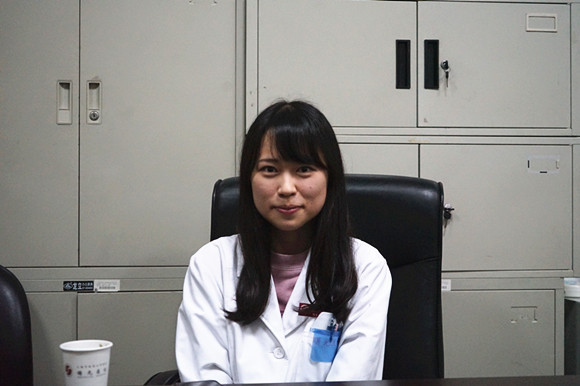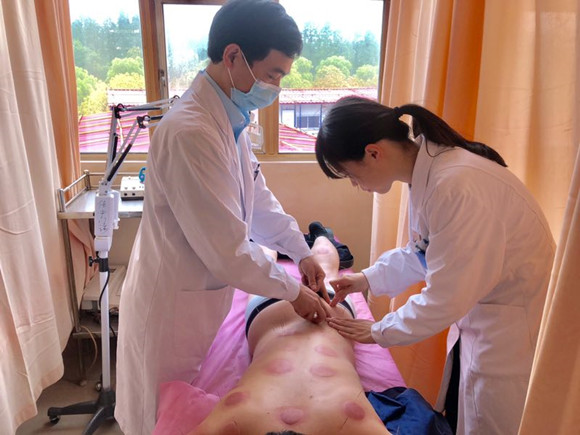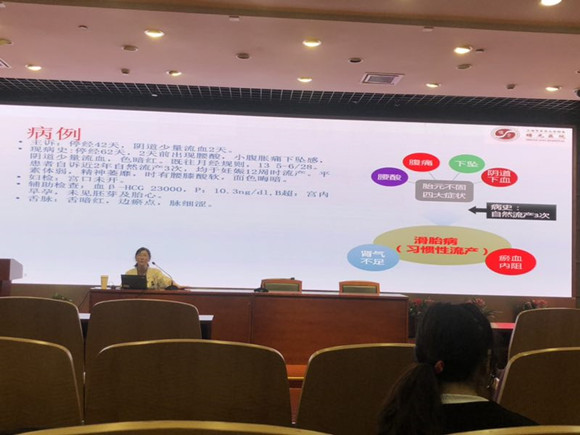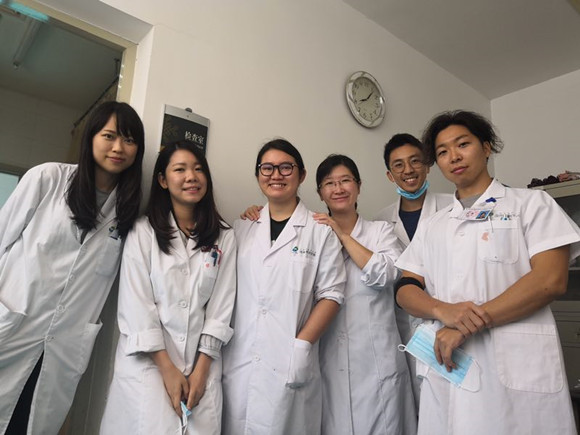

(Yukina Onishi, an intern at Shanghai’s Shuguang Hospital)
With the goal of becoming a TCM doctor, Yukina Onishi has lived in Shanghai for over four years. Hailing from Tokyo, she is now in her fifth year at the Shanghai University of Traditional Chinese Medicine (SHUTCM).
“When I was in high school, my body was weak. I caught a cold easily and always felt tired. To help treat my body, my mom would add some Chinese herbal medicine ingredients like ginger and burdock while cooking. Gradually, I became less susceptible to cold and my body got stronger. From then on, I became interested in TCM. I also realized that integrative Chinese and Western medicine can work better in the treatment of chronic diseases. So I came to China, to learn TCM,” said Yukina.
In Japan, pharmacies are everywhere to be seen, usually offering Kampo medicine (traditional Japanese medicine) like anti-cold medicine and acupoint pastes. It is said that more than 80% of the 60,000 pharmacies in Japan offer Kampo prescriptions. However, despite the popularity of Kampo medicine, there are no TCM doctors in Japan.
After the Meiji Restoration, the status of traditional Kampo medicine was threatened. In 1883, it was stipulated by the Japanese government that doctor’s licenses could only be issued to those studying Western medicine. To get a license, Kampo doctors had to therefore acquire a Western medicine qualification through exams. It was not until 1967 that some Kampo drugs were recognized by the Japanese government as prescription drugs and Kampo medicine began to reemerge.
In 2001, under the requirement of the Ministry of Education, Culture, Sports, Science and Technology (MEXT), Kampo began to be taught as a compulsory course instead of elective in Japanese medical schools. More hospitals also began to recommend Kampo medicine to patients.
Aspiring to learn TCM, Yukina came to China to learn Chinese after graduating from high school. After passing the HSK (Level IV), she was admitted to SHUTCM. Now she is interning at the university’s affiliated Shuguang Hospital.
Though she had learned Chinese and some Chinese characters are similar to Japanese Kanji, she still had difficulty in reading learning materials at first.“Especially in my third year, we had to read ancient classics like the Inner Canon of the Yellow Emperor and the Treatise on Febrile Diseases. I could recognise the characters but couldn’t read them.”
Since July 2018, Yukina has interned in various departments in the hospital. In her opinion, communication between doctors and patients is especially important.
“When I was interning in the gynecology department, some patients didn’t understand why they were asked to undergo tests. I had no idea how to respond to their inquiries. Then I learned from other doctors how to explain to patients for their understanding.”
When doing ward rounds, she also pays attention to communicating with patients. She asks them about their physical conditions. The patients often take the initiative to say hello to her: “Hi, Doctor. Thank you for your care.”

(Yukina Onishi performs acupuncture on a patient)
While communication is important to establish a good doctor-patient relationship, technical capability is a far harder skill to master. Yukina recalled the first time she performed acupuncture on a patient. Encouraged by her mentor, she was still very nervous. To relieve the patient, she had to pretend to be calm. “In fact, I was a little bit worried. That kind of feeling is still fresh in my memory,” she said, understanding that increasing her practical clinical expertise complements her accumulation and consolidation of her fundamental knowledge of TCM.

(Doctors take part in lectures organized by Shuguang Hospital.)
Regarding her career planning, Yukina wants to open a TCM clinic in Shanghai. She noted that Chinese medicine is popular among the Japanese living in Shanghai, as clinics run by Japanese doctors often treat patients with Chinese medicine. Otherwise, if she returns to Japan, she will conduct research on integrative Chinese and Western medicine in a pharmaceutical company, hoping to make full use of what she has learned in China.

According to Yukina, Chinese medicine enjoys a good reputation in the world. “My seniors told me that acupuncture and moxibustion are very popular in the U.S. In my class, there are many international students learning TCM and many of them want to open a TCM clinic in their own country.” It is natural for Chinese people to trust TCM, but much less so for foreigners, though an increasing number believe in its efficacy, or at least in certain aspects of TCM such as acupuncture. “The effect of Chinese medicine is obvious. Through acupuncture, many patients can move their hands and feet. I think Chinese medicine will be recognized by more and more people,” added Yukina.
(By:Yu Jingfei, Wu Qiong)